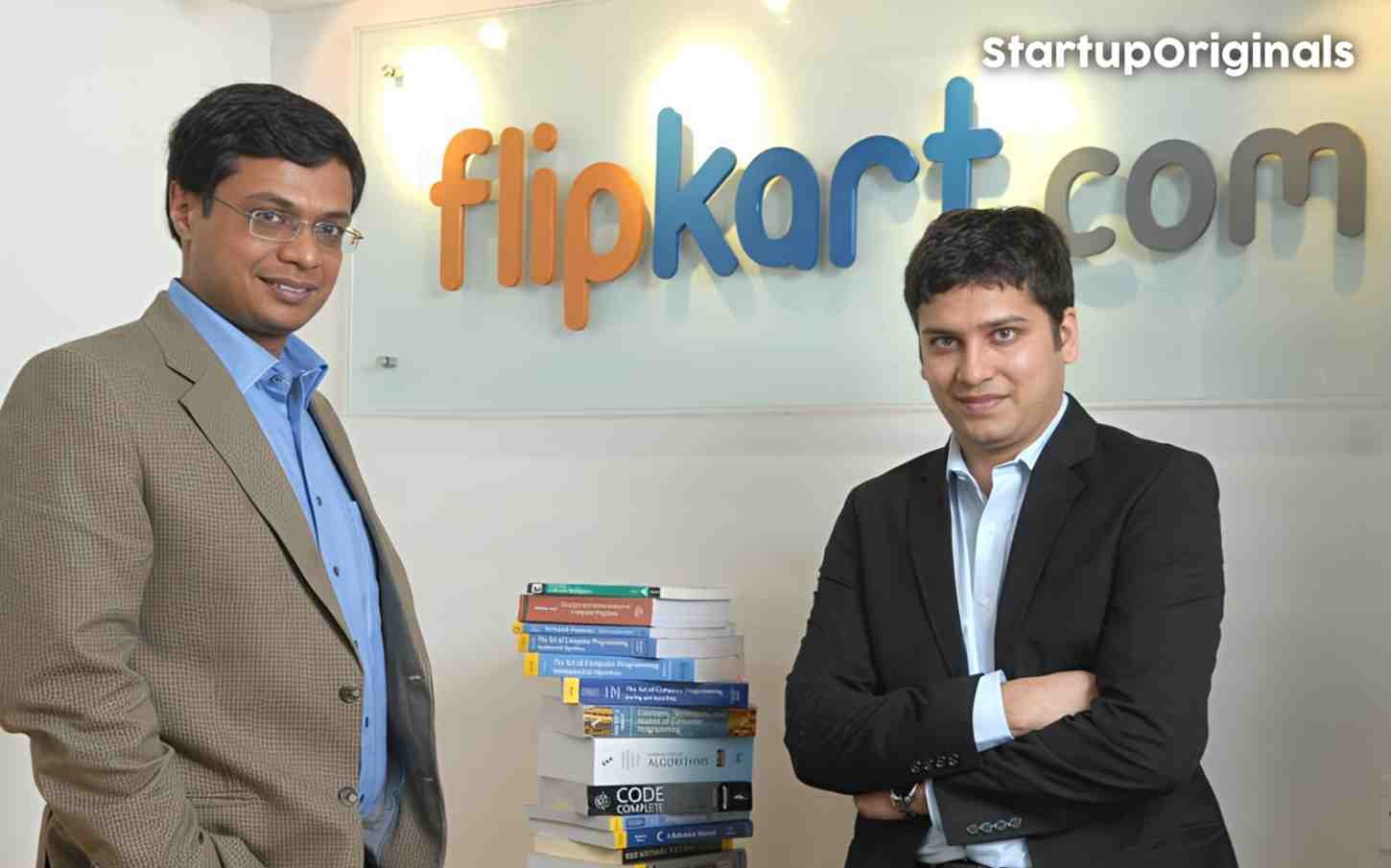
Flipkart is India’s largest homegrown online retail giant-a brand that has transformed the way millions shop and led the surge of Indian startups into the digital era. Launched in 2007 by Sachin Bansal and Binny Bansal, Flipkart started as a modest online bookstore operating out of a rented Bengaluru apartment. Today, it stands as a multi-billion-dollar business, credited with bringing e-commerce to the Indian masses and inspiring an entire ecosystem of entrepreneurship and digital commerce.
Humble Beginnings
Founders and Vision:
- Sachin Bansal and Binny Bansal (not related), both alumni of IIT Delhi and former Amazon employees, dreamed of building a platform that would change the way Indians shop, making a vast range of products accessible to everyone from the comfort of their homes.
- With only ₹4 lakh pooled from their families, they personally coded Flipkart’s website, handled customer queries, and even delivered the earliest book orders on their scooters.
Early Challenges and Innovations
Overcoming Skepticism:
- In 2007, few Indians shopped online, constrained by limited internet access and widespread distrust of digital payments.
- Flipkart’s breakthrough was Cash on Delivery (CoD)-letting customers pay when orders arrived at their doorsteps. This simple solution built immense trust and opened the door for online shopping across India.
- Hassle-free returns and strong customer support set new industry standards and won over even the most skeptical buyers.
Expanding Beyond Books
Rapid Diversification:
- After dominating online book sales, Flipkart quickly expanded into electronics, fashion, appliances, home goods, and more, becoming a one-stop digital marketplace.
- To fuel its rapid growth, Flipkart made strategic acquisitions:
Industry-First Innovations:
- Flipkart notched several “firsts” in Indian e-commerce:
The Flipkart-Walmart Deal: A Landmark in Indian Business
- In May 2018, US retail giant Walmart acquired a 77% stake in Flipkart for $16 billion-one of the world’s largest e-commerce acquisitions at the time, valuing Flipkart at about $21 billion.
- This deal marked Walmart’s entry into Indian e-commerce and cemented Flipkart’s position as the country’s top internet marketplace. Following the acquisition, founders Sachin and Binny Bansal exited the company (Sachin in 2018, Binny gradually, fully exiting by 2023).
New Frontiers: Flipkart Video Originals and Beyond
- Always looking ahead, Flipkart has ventured beyond shopping:
- Flipkart continues to innovate: introducing loyalty programs (Flipkart Plus), easy EMI options, and integrating fintech and quick-commerce services.
Impact and Legacy
- Flipkart didn’t just become India’s leading e-commerce platform-it fundamentally changed how Indians view digital business. Its innovations like CoD and mega sales events set new standards, while its story empowered a generation of Indian startups.
- The founders-Sachin Bansal (who later launched Navi, a fintech company) and Binny Bansal (now advising and investing in startups)-remain influential figures in India’s evolving business landscape.
- Flipkart stands as an enduring example of what can happen when vision, adaptability, and relentless customer focus come together to solve problems on a massive scale.



